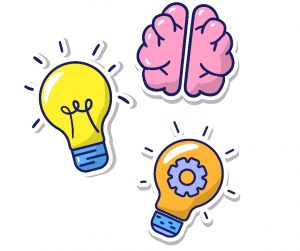How To Study Smart Not Hard: Inasmuch as hardworking is very much encouraged, it seems that studying smart makes it easier for the purpose of studying hard to be achieved. Students are required to put in a lot of effort in their academics in order to make good grades.
The requirement of putting effort in one’s academics extends to the act of working smart. Students who invest their efforts accordingly; in a smart manner are at more propensity to make good grades, whereas students who squarely studies harder without working smart may end up with an average score. The tips on how to study smart will illustrate this better.
Actually, studying smartly requires working hard too. Therefore, studying smartly cannot be smoothly separated from studying hard. Ordinarily, when people hear ‘smartness’ in school, it conveys one kind of import that suggests being cunning and finding your way around passing your exams with little or no act of studying.
In the actual sense of it, to be smart is to be clever, and to be clever is to be intelligent, witty, resourceful, wise and brilliant. I would then define studying smart as the act of being resourceful and witty while putting the necessary efforts in your studies.
Recommended: Advantages and Disadvantages of being a Leader
Top 9 Proven Tips on How to Study Smart not Hard
Below are what it takes to study smarter and not harder.
1. Never Miss a Class: To effectively work smart, a student must never miss a class. Attending classes affords you the opportunity to get first-hand information from your teacher. It affords you the opportunity to learn and understand your teacher; his pattern, interest, direction and possible expectations. Students who do not miss classes will not have to subject themselves to tedious studying in preparation for their examination. This is because by attending classes, they could already the teacher’s area of interest.

Every teacher has areas in their course that interests them the most, and when they get to those areas students could feel them teaching it with passion and emphasis. By this, a student will know what areas to read more than the other, and this is the first step to studying smart.
If you must miss a class, you should ask a colleague to help you record the teaching after which you can listen to them at your convenience. And again, if you must miss all classes, you should endeavour not to miss the introductory class and the conclusion class. It is there that lecturers walk students through the semester and make vital announcements that would be beneficial for exam purposes.
Also see: Differences Between Being Smart and intelligent
2. Make Notes If You Can: Making note is a lot of hard work but in the end, it turns out to be actually a smart move. Students who make notes are already prepared for the exams. This is so because while making the notes, the areas that are not important/examinable are sieved out and the contents of the notes restricted to the examinable areas.

Studying the notes would be just to study the answers to your exams questions in a like manner with which you would answer them on the exam day. Making of notes demands a lot of patience, consistency and endurance. If this cannot be done, then it is important to pay more attention to the examinable areas during studies.
This does not suggest that negligible areas should be totally neglected. Knowing the examinable areas is easier for students who attend classes. Moreso, having a note leaves you with something handy and full of content for adequate revision before the exam.
Recommended: Advantages and Disadvantages of being A Lawyer
3. Begin On Time: Studying smartly demands that a student must begin his exam preparations on time. Students who begin to study only few days or weeks to the exam are most likely to perform bad or at most gather an average score. Not beginning on time is not s smart act at all.

4. Do Not Miss Any Assessment: Missing an assessment or test will increase your burden of studying tediously in order to cover up for the loss and this will put you on so much pressure.

To study smartly therefore, not even one assessment should be missed. Assessments must be taken as seriously as examinations because they are actually one.
Also see: How to argue and think like a lawyer
5. Form or Join a Study Group: The impact of having a functional study group cannot be overemphasized. Participating in academic group discussion helps students to internalize what have been taught or studied.

Not only that; it enables students clarify confusing areas of the subject and serves as a source of encouragement and motivation from the students to themselves. Participating in group discussions is a very smart way to come around good grades in your tests.
6. Solve Past Questions and Practice Questions: You see, exam questions are very exhaustive. Lecturers end up repeating questions although the pattern and approach may become different. Some lecturers would still copy and paste past questions without more or less.

This is not just about the reoccurrence of past questions in the exam. Past questions are practice questions gives you the perspective of the course when put into question. You also from there get an idea of the exam pattern. Also, it opens students to the areas that are examinable.
Moreso, past questions and practice questions drags the students back to their tables, because by going through them they realize the loopholes in their studies. Students who make notes need not write down answers to the past questions for that is double time consumption for contents which are already contained in their notes. Solving of past questions is a very smart way of studying.
The practice will enable the students to know that which is important and know the areas which are reoccurring in order to pa y the necessary attention to them.
Recommended: Countries with the worst education system in the world
7. Stay Healthy: A part of studying smart is to stay healthy. The act of studying is a serious mental exercise and it actually drains one’s strength and energy. Students who feed on healthy nutrition are more likely to spend less time on studies. This is because they tend to comprehend faster.

The brain needs nutrient to function properly. You would struggle so much to comprehend and consequently spend more time on studies if your brain lacks nutrient. There are foods that are particularly good for the brain. Also very important is the act of exercising and having enough rest. There is no point forcing oneself to study when in fact the body needs rest.
Such is tantamount to working hard but certainly not working smart. The summary is this; when you stay healthy by having adequate nutrients, having regular exercise and having enough sleep, you would not need to study the whole day or for several hours in order to comprehend. A few hour studies would be highly efficacious instead.
8. Stay Positive: You would be subjecting yourself to a lot of pressure if most of the thoughts coming around you are negative, and when you conceive negative thoughts, it affects your state of mind and renders you indisposed for effective studies.

You would only find yourself forcing things. Staying positive is tantamount to staying healthy. The positivity in this regard is in respect of your academics and the outcome of your efforts.
Recommended: Oldest Banks in The World
9. Spacing Out is Good: “Distributed practice”—spacing out your study over multiple brief periods of time over several days and weeks—is one of the most effective learning strategies. Working on each class for a short period every day is the most productive method. Even though your total study time will be comparable (or less) to one or two lengthy library sessions, you will understand the subject matter better and retain it for a longer period. The most important thing is how you utilise your study time, not how long you study. Studying for too long makes it difficult to focus, which hinders learning and memory retention.

You need control over your schedule to spread out studies over multiple days and weeks in short bursts. Keeping a daily task plan can help you include regular active studying sessions for each lesson. Every day, make an effort to do something for each class. When estimating how much time you will spend on each activity, be precise and practical; your list shouldn’t contain more chores than you can finish in a single day.
Spacing out your study not only promotes deeper learning but also prevents procrastination. You can deal with the unpleasant project for 30 minutes each day, rather than having to do it for four hours on Monday. A feared project will probably be more tolerable and less likely to be postponed until the very last minute if you work on it for a shorter, more regular period. Last, but not least, it’s ideal to create flashcards for any stuff you need to memorise for class (names, dates, formulas) and review it throughout the day rather than doing it all at once.
Also see: Highest Paying Programming Jobs 2023
Conclusion
Studying and reading are not the same. Studying is a deeper concept of reading. It is used in reference to a purposeful reading; for instance, studying for exam purposes. Inasmuch as examination demands studying hard, studying smart is most fruitful for it does not take away the demand to study hard but prescribes a better technique for studying hard.
Students who study smartly as opposed to squarely studying hard tend to be happier for reasons which are obvious. In addition, they actually master the act of apportioning energy appropriately and also the act of effective planning, strategizing and time management.

Edeh Samuel Chukwuemeka, ACMC, is a lawyer and a certified mediator/conciliator in Nigeria. He is also a developer with knowledge in various programming languages. Samuel is determined to leverage his skills in technology, SEO, and legal practice to revolutionize the legal profession worldwide by creating web and mobile applications that simplify legal research. Sam is also passionate about educating and providing valuable information to people.